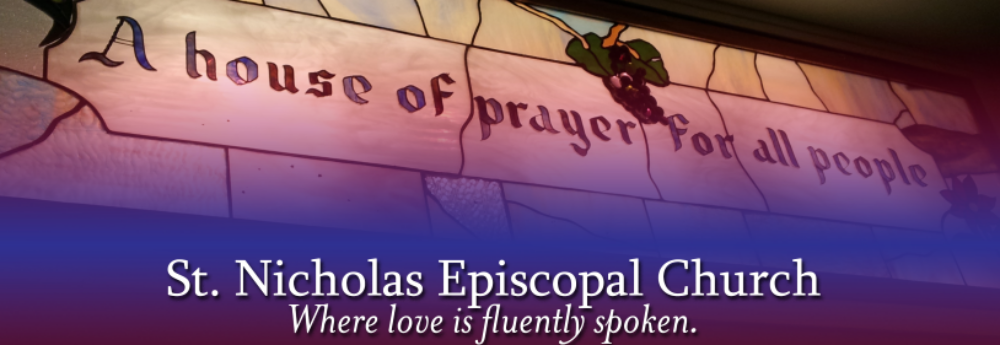Make Poverty History is a global, ecumenical campaign to eradicate poverty. Many other Episcopal and Anglican churches are working and praying for an end to poverty, along with many other people of faith. Ministers of 8 countries will meet July 2 in Gleneagles, Scotland to discuss matters of global importance; they are in a position to commit to a plan to reduce or forgive the debt load on poor countries, and to access to health care and disease prevention.
Every single day, 30,000 children are dying as a result of extreme poverty. This year, 2005, we finally have the resources, knowledge and opportunity to end this shameful situation. — MakePovertyHistory.org
The Church of England is one of many faiths standing together to make poverty, and for the eradication of disease and debt that are among the root causes of poverty. The Archbishop of Canterbury recently hosted a meeting of UK and US church leaders, and the following statement was issued at the conclusion of the meeting June 29th:
The London Forum, meeting at Lambeth Palace and hosted by the Archbishop of Canterbury, Dr Rowan Williams, issued a final communiqu? saying that the time for change is now:
There is no place for apathy in a world which sees 30,000 children die each day because of poverty related conditions. The bible teaches that whatever we do to the poorest we do also for Jesus. We believe God judges nations by what they do to the poorest.
The Forum was attended by delegations from UK Churches organised by Dr David Goodbourn of Churches Together and Britain and Ireland; US churches organised by The Revd Jim Wallis, leader of the peace and justice network Sojourners, representatives of African led churches and representatives from faith based mission and development agencies.
A similar statement was issued at the end of the Anglican Consultative Council meeting.
Make Poverty History (UK) is aligned with The ONE Campaign (US). Many different groups of people are working together to increase awareness of the tragedy and scandal of world poverty. People on both sides of the political fence in Britain and America are literally banding together for this cause. In token of their support for the world’s poor, white band bracelets and banners are worn and shown. Videos and films have been shown on television and as ads at movie theaters to raise awareness. And of course, a series of free concerts called Live 8 will bring the attention of the world on the cause of persuading our leaders to make poverty history.
Ministers of 8 countries will meet July 2 in Gleneagles, Scotland to discuss matters of global importance; they are in a position to commit to a plan to reduce or forgive the debt load on poor countries. We are in a position to tell them that something must be done.
If you do nothing else, watch this video. It’s a short excerpt of a documentary called “The Orphans of Nkandla.”
Then find a white band and wear it, and see what else you can do.
